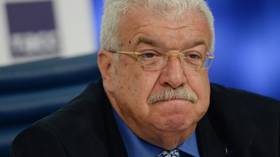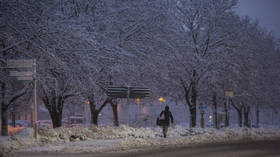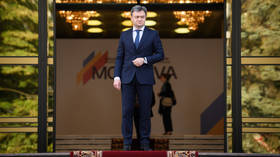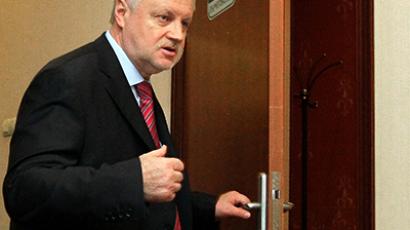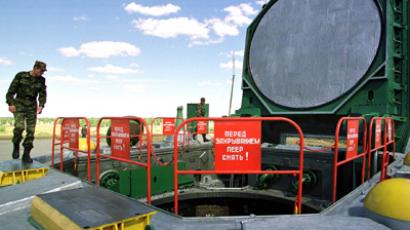Mayor-in-opposition to United Russia ruling party detained
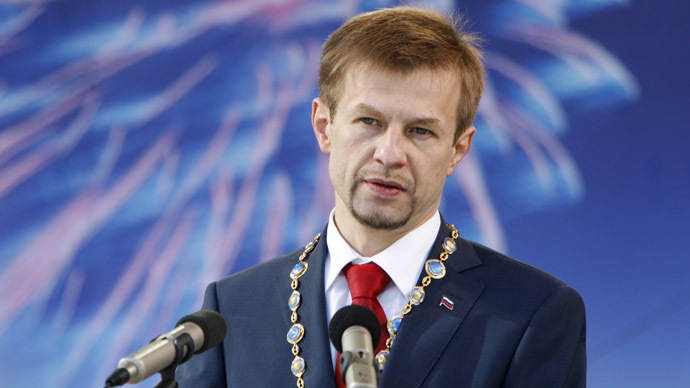
Yevgeniy Urlashov - the mayor of the major industrial center of Yaroslavl and a staunch opponent of the United Russia party has been detained over suspicion of bribery.
Police held Urlashov on Tuesday night as he was exiting the office of the Civil Platform party and took him to his residence to conduct a search. The mayor’s press secretary told reporters that the city head’s car was stopped in the street and masked men dragged him out of the vehicle and first took him to the regional department of the Interior Ministry and early in the morning– to his apartment where the search was conducted.
Also early in the morning, Russia’s federal investigation agency – the Investigation Committee – reported through its web-site that criminal cases had been launched against Mayor Urlashov and three more city officials over suspicion of attempted bribery. The crime carries up to five years in jail and a fine that is twenty times the sum of the attempted bribe.
Investigators suspect that from December 2012 till early July 2013 city officials were trying to extort a bribe from a local businessman who was working on a city administration contract. The mayor and his aides wanted a 14 million roubles (about $425,000) kickback from the cleaning company, threatening to not accept the works and delay payment if their demands are not met the law enforcers report.
Local police said the 14 million rouble bribe was only one tranche and that the city officials wanted 45 million roubles in total (over $1.2 million) .
Investigators claim that when they were searching Urlashov’s
residence his daughter attempted to leave carrying $500,000 in
cash, which she wanted to hide in a neighbors’ apartment. They
also said they managed to detain one person who acted as a
middleman in the alleged scheme, but failed to detain one of the
mayor’s aides, who is also a suspect in the case.
The man was detained a short time later and has reportedly
entered a plea deal. The next day after the detention the
Izvestia daily quoted a police source as saying that all of
Urlashov’s aides had agreed to collaborate with investigators and
give testimony against their boss.
Russian news agencies also reported, quoting police sources, that
the mayor’s neighbor confessed that Urlashov had earlier given
him another 20 million roubles ($697,000) asking to hide the
money. The neighbor handed over the cash to investigators, the
sources said.
However, in press comments that appeared later in the day both Urlashov’s lawyer and his daughter refuted the reports about seized money.
Urlashov strongly denied the accusations saying that the investigation was political repressions on the part of the parliamentary majority party United Russia. “For a whole year they are trying to link me to some criminal cases, they force me to accept faulty roads and I am not surprised that it happened here now,” the politician said before being taken away from his searched home.
In a telephone interview with the Dozhd TV channel Urlashov summarily denied the reports of seized cash. “They seized nothing from me. They searched all my deputies and also found nothing,” he said. The mayor explained that the criminal case against him is based only on the report by the businessman who was a member of the United Russia party and whose road cleaning and repair work he refused to accept.
The mayor also reportedly told the police during the search that
he had been offered bribes from city businessmen, but never
accepted them or tried to extract one. At the same time Urlashov
admitted that he had never tried to address the law enforcers
over the issue.
In April 2012 Urlashov won the mayoral polls in Yaroslavl running as an independent candidate and defeating United Russia representative by a huge margin. Yaroslavl elections caused extremely sharp reaction from United Russia leader Dmitry Medvedev who called the situation inadmissible and a failure.
Urlashov himself was a United Russia member between 2008 and 2011
but quit the party ranks before the polls claiming that he was
disappointed in its methods. Soon after the election the
politician joined the Civil Platform Party – the new
market-oriented pro-democracy movement headed by billionaire
politician Mikhail Prokhorov. Civil Platform have said that they
planned to put Urlashov on top of the party electoral list at the
regional parliamentary poll due in September.
United Russia denied any involvement in the case, claiming that the detention of the party’s critic could actually have negative effect at its performance in the September poll. “The party can sustain significant damage, the voters’ trust can be undermined and we will lose votes,” said Konstantin Volkov, the press secretary of United Russia’s Yaroslavl regional branch.
The secretary of United Russia’s general council, Sergey Neverov,
said it was too early for conclusions but noted that when law
enforcers press charges against an incumbent mayor on the eve of
elections these charges must be very well backed. Neverov also
added that the real victims of the story were the residents of
Yaroslavl as they needed their problems solved regardless of who
heads the administration.

Mikhail Prokhorov’s immediate reaction to Urlashov’s arrest was to call it “a blow to the civil rights and freedoms of every Russian citizen”.
The leader of the Civil Platform wrote in his blog that
regardless of what were the charges against the mayor, the
detention had been done with the sole objective to intimidate
Urlashov as well as all independent politicians and all active
citizens of Russia.
The businessman was also ready to put up bail for Urlashov so he
would not be put in pre-trial custody. So far the mayor remains
under arrest, but within three days investigators must either get
court approval for pre-trial detention or release him. A court is
expected to decide the matter on Thursday afternoon.
Prokhorov’s press secretary Tatyana Kosobokova told reporters on Wednesday that her boss still planned to visit Yaroslavl later this week in order to present the party candidates for the regional legislature.




